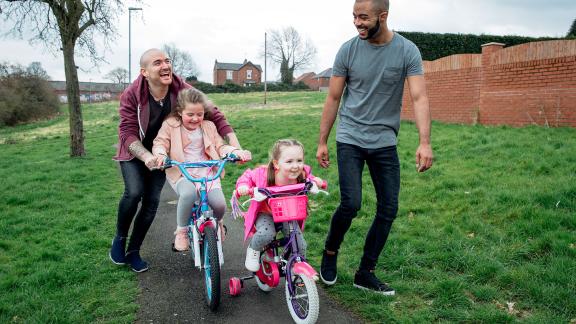Adoption, kinship and childcare – better supporting our workforce

The NHS aims to be a compassionate, inclusive and a flexible place to work. The Agenda for Change terms and conditions of service handbook includes provisions for leave and pay for new parents, carers and parental leave. In September 2021 new flexible working provisions were published in England and Wales (and in Northern Ireland in April 2022) including a right to request flexible working from day one of employment, no limit on the number of requests and an escalation stage to explore all options.
But we know that family life doesn’t always fit neatly into a box or a policy - the NHS Staff Council Equality, Diversity and Inclusion group (EDIG) has had an increasing number of queries from both NHS staff who are growing their families. or have new caring responsibilities and also from employers looking to support staff.
Policies don’t meet specific needs
In the North East London NHS Foundation Trust, through their parent and carer network and women’s network, staff have expressed concerns about how current policies do not meet their specific needs, in particular when adopting, and the lengthy assessment process that colleagues go through, which is completely different from the process for pregnancy and maternity. Managers also do not seem to have a clear policy to support this.
In addition, when colleagues are awarded custody of a child or young person, colleagues need sufficient time to allow the child or young person to settle into their new environment, find a new school, change city/town and adapt to a new culture.
Changing circumstances
As we navigate the questions that come to us, we have learnt that there isn’t a one-size-fits-all process or model. Things change at the last minute, meetings might be required at short notice and children may require additional support. It has left us with a question – how can we make sure the NHS is able to support its staff who have changing families and be the compassionate, inclusive and flexible place it aims to be when each case can be so different?
An increase in kinship care
Members of EDIG met with Adoption UK to learn more about not only adoption but kinship care as well – this is definitely something we are hearing more and more about. Kinship care is when a child lives with a relative (around half of kinship carers are grandparents) or friend, because their parent isn’t able to care for them. It might be an informal arrangement or more formal such as a Child Arrangements Order or Special Guardianship Order.
We know that there has been an increase in kinship care arrangements, that children in kinship care often have high level of needs and many kinship carers have support needs of their own.
A call out to share good practice
EDIG wants to hear from NHS staff, managers and trade union representatives who have lived experience, are part of peer support groups and have agreed great local policies, so we can hear good practice and most importantly share and encourage it. This may be how time off is arranged, training for managers to support staff, forums and networks for peer support. Please share this good practice by emailing diversityandinclusion@nhsemployers.org.
In the meantime Adoption UK have lots of useful resources, a helpline and a simplified outline of the process. Also take a look at Kinship - The kinship care charity.
Further information
Learn more about the role of the NHS Staff Council and access further information on:



